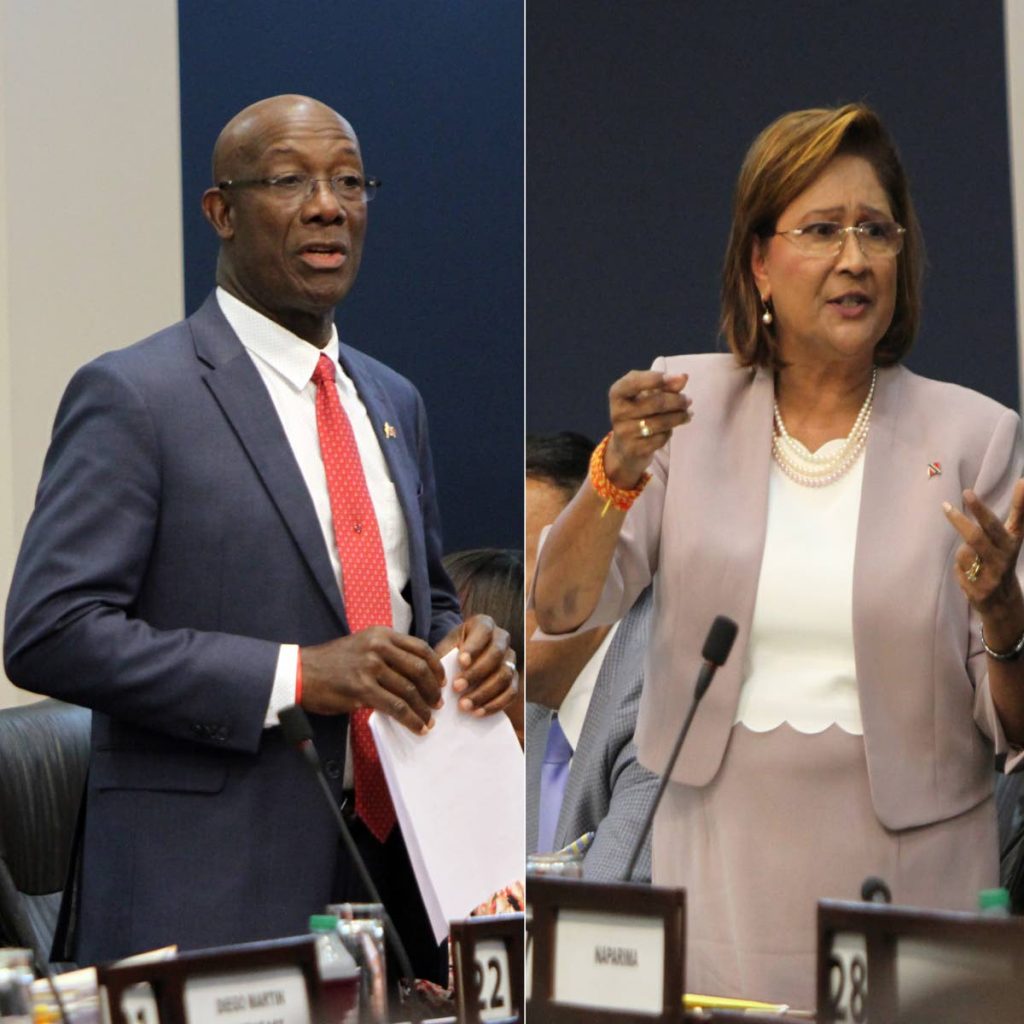Westminster vs Rowley

PROF RAMESH DEOSARAN
Westminster. This is a system of government based on the model used in the British parliament and which evolved over centuries through political conflicts and traditions. Has this system now outgrown itself in this country? Is there urgent need for several repairs? Or is it that we do not have the ethics and traditions to operate this legally-framed system?
For many years now, our Westminster-type government has been plagued with complaints of public misconduct, state corruption and inefficiency such that one political leader after another – from Dr Eric Williams, George Chambers, ANR Robinson, Basdeo Panday, Kamla Persad-Bissessar and now Dr Keith Rowley – has had to defend their members and sometimes themselves. Is Westminster against us? Or is it in our stars?
When Opposition Leader Kamla Persad-Bissessar recently appealed for “new faces” in her United National Congress party, it wasn’t only a matter of age. And when Prime Minister Dr Keith Rowley admitted that sometimes “bad politicians get elected” to parliament, it wasn’t only over a troubled housing project. It seems a struggle against a permissive political system – a poisoned mixture of bad habits and weak structures.
Certainly, the integrity and competence of any prime minister, ministers, members of parliament, members of various agencies and state boards must face quick accountability, especially for tax dollars. But so far our Westminster system has not effectively delivered. It often frustrates. Part of the answer is that the system puts a lot of trust on those who plead for votes, or whose resumes reveal too little about their dark sides.
As the Westminster party system evolved, there were always troubling concerns over the overpowering impact of self-interest, arrogance, greed and untamed ambitions (state of nature elements). As the Facebook scandal now reveals, where regulations, supervision and accountability are weak, “state of nature” instincts take over, even drifting into a culture of anarchy. While democracy itself is now under question, how can Westminster system be reformed without having a one-party state, a dictatorship, patronage or election financing? Or do we settle for the lesser evil?
This “self-interest vs the public good” tension has been at the centre of the furious economic and political debates during the 16th to 20th centuries, going beyond Westminster domain. Today, almost all formerly British democracies are perpetually struggling to “fix the system” so as to prevent or prosecute self-interest, greed, misconduct or plain runaway vanities.
The Westminster system, enriched for example, with a Canadian-type Bill of Rights, provides cherished freedoms – eg speech, association, privacy, movement, etc. But within this, there are lots of spaces which depend on personal integrity, trust, self-respect and shame. Such spaces have instead been greedily exploited, even legally so, turning due process privileges into an economic battle between the poor and rich with justice as an acceptable casualty. It isn’t just knowing right from wrong. It is the practice and, forgive me, the hypocrisy between.
And the Westminster executive – the people’s voice – rather than seeking balance, remain strapped by the separation of powers. The people do not complain too much for fear of being imprisoned for contempt by an “independent” but inefficient judiciary. All this, it appears, is the price the population pays for the freedoms that Westminster democracy offers.
Our Westminster institutions are failing, pushing citizens into self-preservation and political vigilantism. Killing civility too. The population must revisit its original powers. Right now, there is an important Consumer Protection Bill from Trade Minister Paula Gopie-Scoon; also a bill for Tobago self-government. Where are the NGOs, universities, chambers of commerce, consumers? Or is it learnt helplessness?
Some things that can be done for temporary relief: (1) As cabinet chairman, the PM must treat seriously citizens’ complaints about the integrity and behaviour of ministers. (2) Deeper examination undertaken before appointing ministers – financial integrity, drug use, character etc. (3) A PM directive that all legitimate correspondence from the public to ministers, state boards etc, be answered within one week on receipt. Too many arrogant officials. (I admired Ken Gordon for responsiveness when NAR minister of trade and industry).
Too many allegations of corruption and misconduct have slipped through Westminster spaces. Many political and moral philosophers (eg Hobbes, Locke, Rousseau, Pareto, etc.) warned us about the civic dangers of greed, frozen inequalities, envy, vanity and subversive self-interest. Which system can conquer these vices? Can our churches help?


Comments
"Westminster vs Rowley"